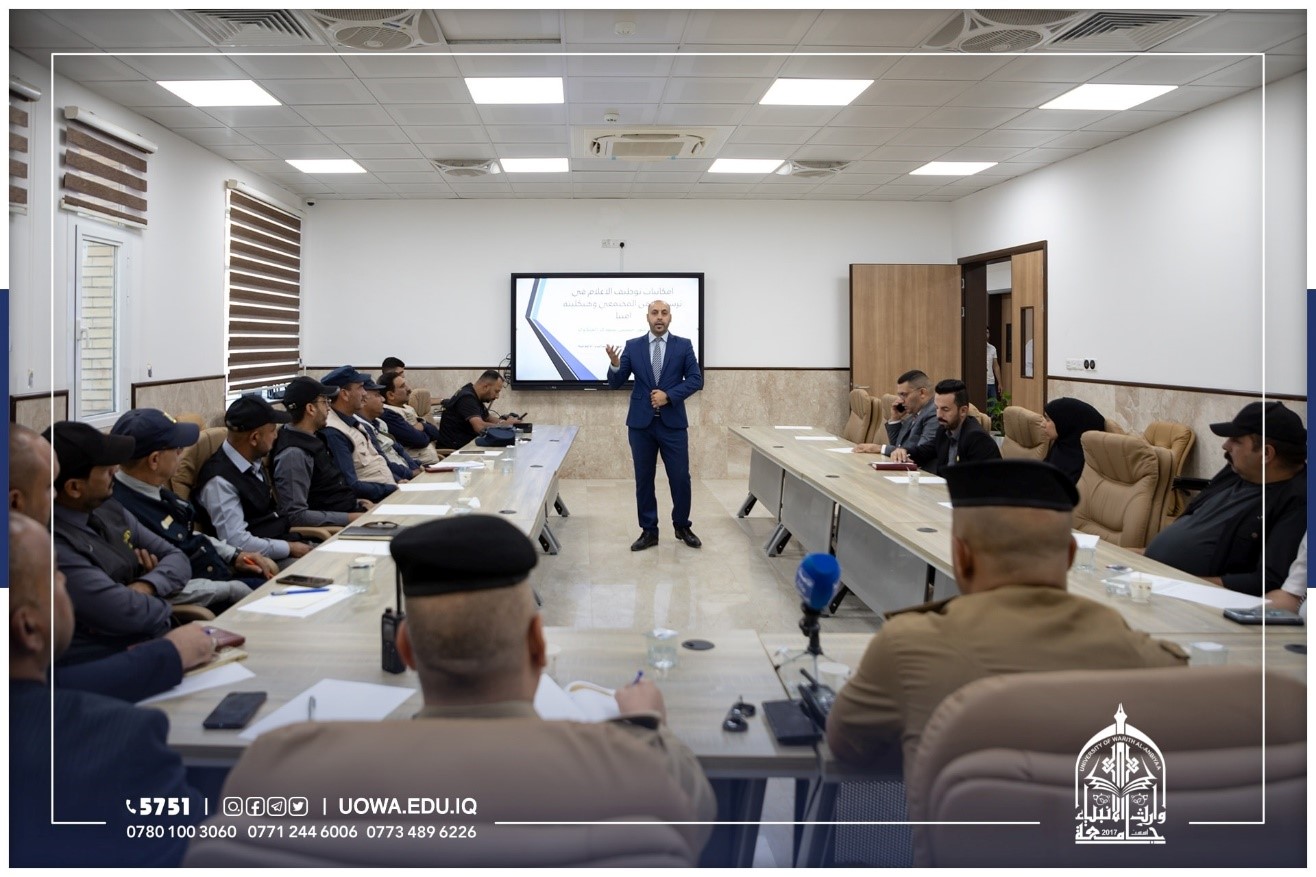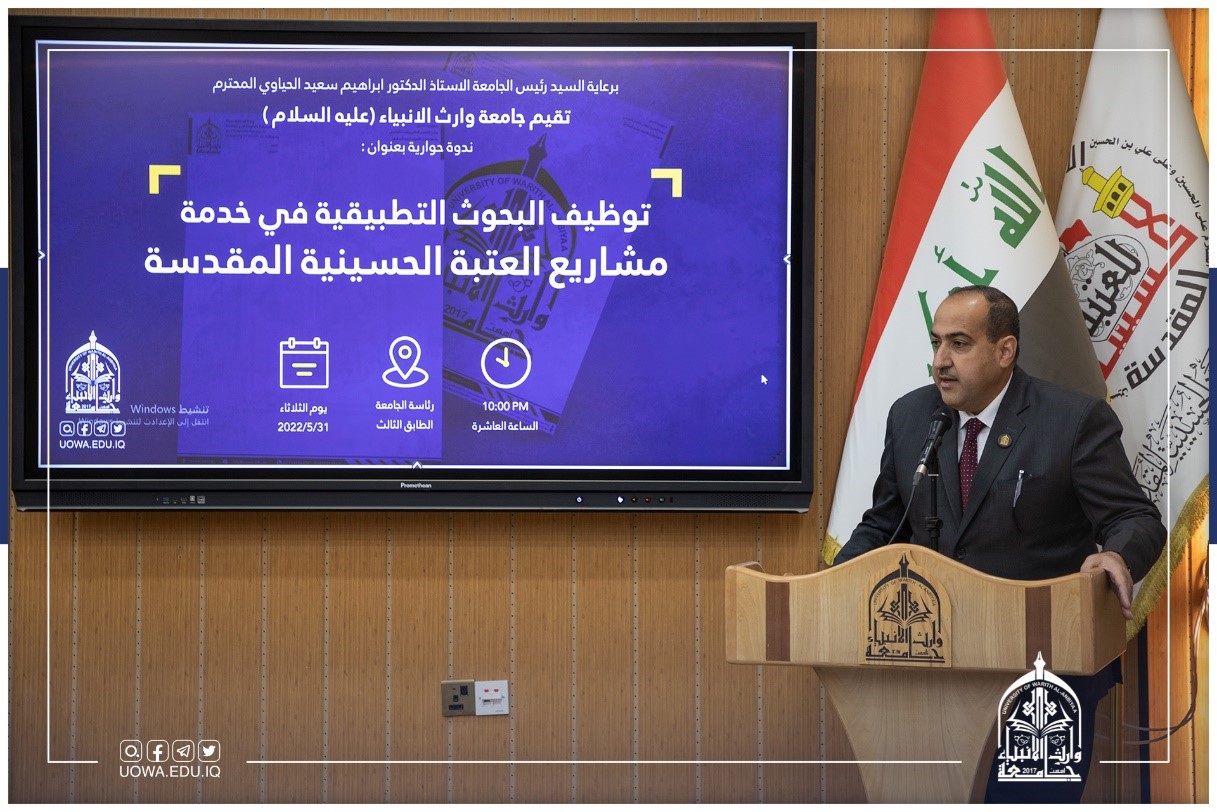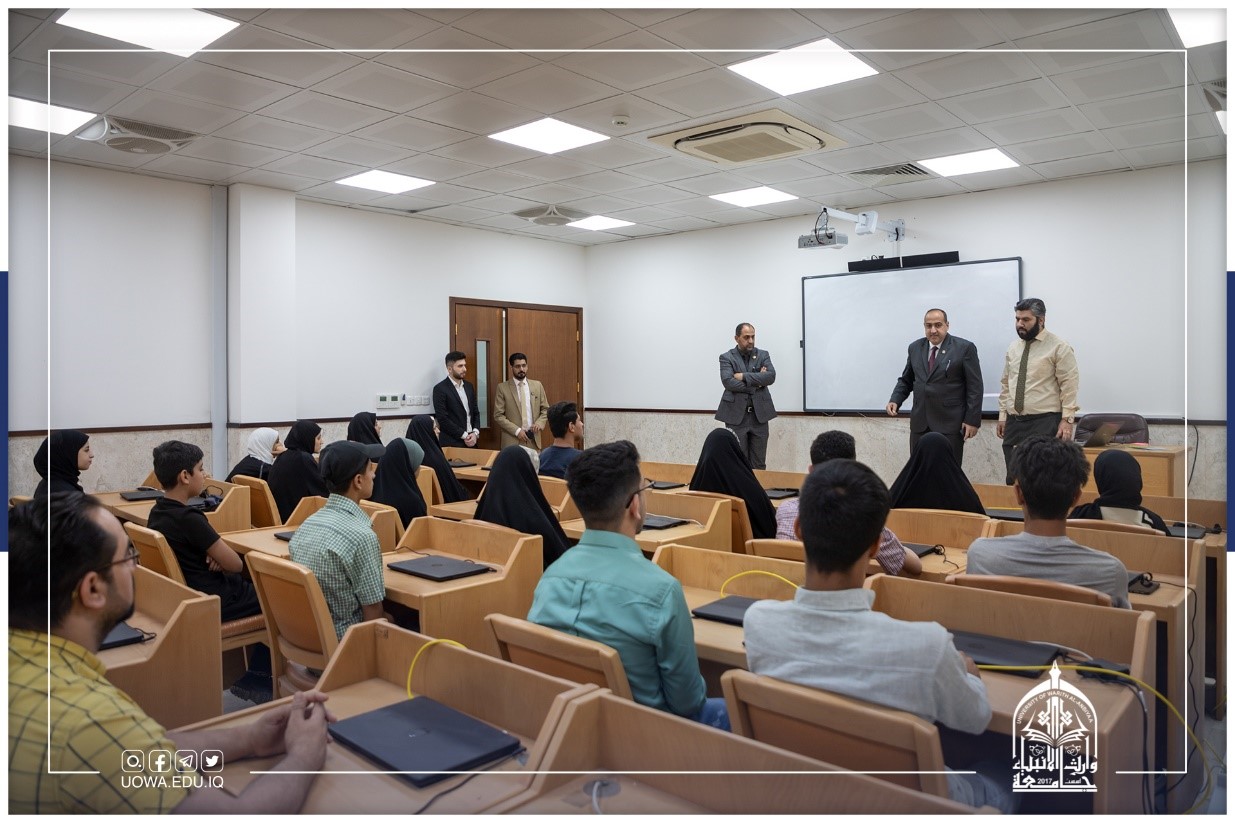Faculty and Students from the College of Nursing Collaborate with Local NGO to Support Elderly Care, Advancing SDGs
In alignment with the Sustainable Development Goals (SDGs), particularly SDG 3: Good Health and Well-being and SDG 17: Partnerships for the Goals, faculty members and students from the College of Nursing partnered with a local NGO to conduct a meaningful visit to the Elderly Care Home in Karbala. This initiative reflects the university's commitment to addressing global challenges through community engagement and collaboration.
The purpose of the visit was multifaceted. It provided psychological support to elderly residents, identified and addressed their physical and emotional needs, and delivered direct care where required. Additionally, the team offered gifts to the elderly and the caregivers who play a crucial role in maintaining the residents' well-being. By fostering interaction and building trust with the residents, the visit aimed to enhance their quality of life, counter social isolation, and ensure their mental health needs were acknowledged.
This effort is an example of how universities can collaborate with non-governmental organizations (NGOs) to tackle SDGs at the grassroots level, creating a lasting impact on local communities. By engaging nursing students in hands-on, compassionate care activities, the initiative also supports the development of future healthcare professionals who are socially conscious and attuned to the broader needs of vulnerable populations.
Moreover, the partnership strengthens the role of universities as active contributors to sustainable development through local and global collaborations, highlighting how educational institutions can be integral in implementing best practices in health and social care, fostering inclusive communities, and building strong support networks. The initiative serves as a model for other institutions to engage with NGOs in addressing societal challenges, advancing the SDGs through practical, impactful interventions.

University of Warith Al-Anbiyaa Collaborates with Local Authorities to Strengthen Community Security and Address SDGs
In alignment with the Sustainable Development Goals (SDGs), particularly SDG 16: Peace, Justice, and Strong Institutions and SDG 17: Partnerships for the Goals, the University of Warith Al-Anbiyaa (peace be upon him), in collaboration with the Iraqi Academics Union (Karbala branch), hosted a workshop for the Karbala Police Command. The workshop titled "The Potential of Utilizing Media to Reinforce and Structure Community Security" focused on strategies to enhance community security through effective use of media.
Led by university faculty members, the workshop explored how security media can be leveraged to prevent destabilizing threats, build trust between citizens and security forces, and promote collaboration. Special emphasis was placed on combating misinformation and rumors, particularly in light of the rapid spread of information via social media. The importance of encouraging citizens to rely on official and trusted sources of news was also discussed as a key measure to strengthen societal security.
This initiative underscores the university’s collaboration with local authorities and NGOs to address community safety challenges, a key component of the SDGs. By fostering partnerships with security institutions and promoting responsible media use, the university plays an active role in supporting sustainable development through peace, justice, and strong institutions. In closing, University President Professor Dr. Ibrahim Al-Hayawi commended the police command for their vital efforts in maintaining community security, further highlighting the importance of cross-sector collaboration for sustainable outcomes.

University of Warith Al-Anbiyaa Collaborates with NGOs to Tackle Community Challenges through Applied Research
In line with its commitment to the Sustainable Development Goals (SDGs), particularly SDG 9: Industry, Innovation, and Infrastructure and SDG 17: Partnerships for the Goals, the University of Warith Al-Anbiyaa hosted a dialogue seminar aimed at fostering collaboration between academic researchers and local NGOs. Under the patronage of University President Professor Dr. Ibrahim Al-Hayawi, and in collaboration with the Holy Shrine of Imam Hussein, the seminar explored ways to utilize applied scientific research to address critical community challenges.
The event featured department heads from various sectors of the Holy Shrine, including representatives from the Fadak Farm, the Department of Agriculture, and the Telecommunications Division, to discuss pressing issues facing the community. These included soil salinity, groundwater management, strategic crop marketing, telecommunications challenges, and workforce satisfaction.
The focus of the seminar was to explore how applied research can support NGOs in overcoming these obstacles, enhancing the effectiveness of service-oriented projects for the Iraqi community. The university president emphasized the importance of collaboration between NGOs, service providers, and researchers, directing the formation of coordinated efforts to address these challenges.
This initiative highlights the university's role in driving SDG-focused innovation by partnering with local NGOs and community organizations. By aligning applied research with real-world community needs, the university actively contributes to achieving sustainable solutions, strengthening its role in facilitating NGO collaborations to tackle complex societal issues.

University of Warith Al-Anbiyaa Collaborates with NGOs to Empower Youth and Support SDG Achievement
In alignment with the Sustainable Development Goals (SDGs), specifically SDG 4: Quality Education and SDG 17: Partnerships for the Goals, the University of Warith Al-Anbiyaa concluded its training program titled "Together Towards a Better Future", which was conducted in collaboration with the Directorate of Youth and Sports. The program targeted high school students, aiming to equip them with essential skills and foster personal development.
The program commenced with an inspiring address from the university president, emphasizing the university’s commitment to preparing future leaders and offering full support to community-serving initiatives. The training included a developmental lecture on "Self-Motivation", delivered by trainer Khulood Ibrahim Al-Bayati, designed to encourage students to pursue excellence through positive competition. Additionally, a session on the fundamentals of Microsoft Word, led by Mr Nabeel Al-Sharifi, was offered to enhance students' technical competencies, which are crucial for academic success.
The event concluded with a guided tour of the university's practical facilities, providing participants with a firsthand understanding of its resources. The participants expressed gratitude for the university’s contributions to youth empowerment and societal development.
This initiative underscores the university’s active collaboration with NGOs to address SDG goals through education and skill-building. By providing specialized, modern training programs, the university not only contributes to the personal growth of students but also strengthens partnerships that aim to address societal challenges, promoting sustainable development at the community level.
